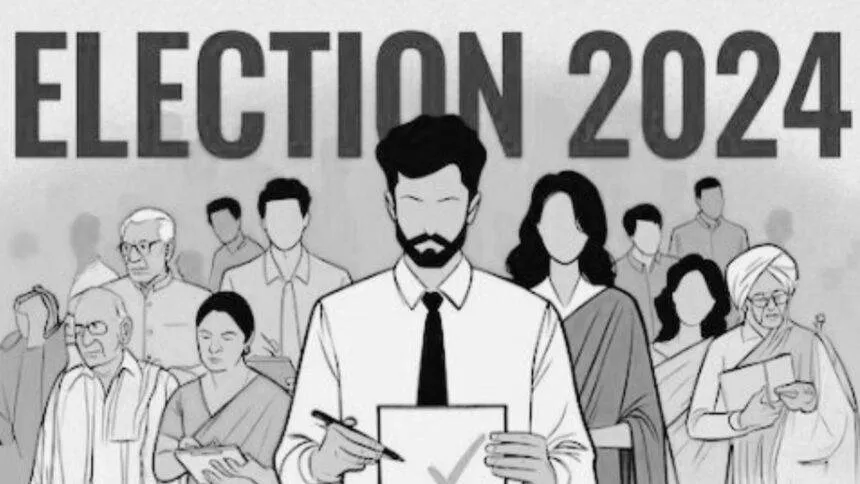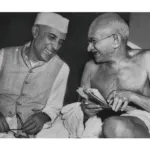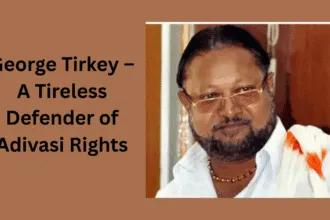The Election Commission of India, tasked with overseeing the largest democratic exercise in the world, is under public scrutiny once again. Elections to the sixth and penultimate phase of the General Elections-2024 was over on 25th May 2024. A total of 58 Lok Sabha seats in 8 States and Union Territories voted till Saturday. With this, polling has been completed in 28 States and Union Territories, in 486 constituencies, along with 105 Assembly Constituencies of Odisha. The last phase of polling will be on June 1 for the remaining 57 seats and 42 Assembly Constituencies of Odisha and the counting of votes will be on June 4. The Election Commission of India released, for the first time in this General Election, the absolute number of votes cast in each constituency for the first five phases. But the controversy regarding delay in publishing the data at booth level in Form 17C in time made the ECI face public criticism.
Leading senior advocate Kapil Sibal posted on X about the ECI affidavit telling the Supreme Court that there is an absence of a legal mandate to upload From 17C, which is the record of the votes polled at a polling station. He went on to describe the ECI’s action as shocking and questioned, “If the votes counted are uploaded, why not the votes polled?” He also doubted the impartiality of ECI by saying, “How do we trust such a commission ?”
- S N Sahu, the noted columnist, has quoted in his article that people’s trust in the ECI has declined considerably. In a recent survey conducted by CSDS and Lok Niti, 58 percent of people surveyed said that they had lost faith in ECI, he quoted.
The reluctance to place indisputable voting figures in the public domain by uploading Form 17C on its website prolongs the doubts and discussions about the authenticity of voting figures and the integrity of the electoral process. Public trust is the prerequisite of any institution in a democracy.
It may be pointed out that the controversy over the authenticity of the commission’s data erupted when the ECI took 11 days after the first phase of polls and four days after the second phase to put out the final voters turnouts. This inordinate delay in publishing the final figures, which in previous elections were made public within 24 hours of voting; made the opposition parties to question the integrity of ECI. In addition to avoidable delay, the final figures showed a sharp increase of more than five percent from the voting percentage announced by the commission at the end of the polling day. Questions were justifiably raised on why the total number of registered voters in each parliamentary constituency was not available on EC website. It is raised that the polling percentage put out by the commission without revealing the total number of registered voters in a constituency was meaningless.
EC has responded by saying that the exact number of votes polled at each polling station is made available to the contesting candidates or their polling agents through Form 17C part 1, in which all the votes polled at a station are recorded.
In reply to a petition filed in the Supreme Court seeking direction to EC to upload Form 17C on the website may lead to its misuse and cause confusion over the total votes polled at a polling station. Moreover, it claimed that EC is not legally bound to publish the final, authenticated data of voter turnout at all polling stations. It is not a question of the legality of the claim being made by the opposition parties and reform groups but is a question of people’s trust in the electoral process.
The bias allegations against EC galore :
- The ECI faces allegations of political bias and favouritism in its decision-making processes.
- There are instances of abrupt transfer of senior officers working under state governments by an order of the commission.
- Instances of violations of MCC by political parties and candidates, such as hate speech, misuse of government resources, and distribution of cash and gifts, highlight the need for more effective enforcement mechanisms.
- Opposition political parties have alleged often times that the ECI is being influenced by the ruling party or failing to act impartially in addressing electoral disputes and complaints.
- With the notification for General Elections on March 16, 2024, it is expected that the rules and instructions in vogue should be strictly followed and enforced. In the middle of an election, if the rules of the game are changed by way of clarification, contesting candidates would be put to trouble enormously. The recent instructions of the ECI on sharing of expenditure among contesting M.P. and MLA candidates who participated in meetings/rallies and shared dias with Star Campaigner is a case in point.
A day after the Supreme Court declined to direct the EC to publish booth-wise election data as recorded in Form 17C, the Election Commission released the absolute number of eligible voters and votes cast across parliamentary constituencies in the first five phases to set at rest about the delay in release of voter turnout data. According to EC, of the over 76.3 crore eligible voters in the first five phases of the Lok Sabha polls, as many as 50.7 crore people have cast their votes. Speaking with TOI after the completion of 5th phase, Chief Election Commissioner Rajiv Kumar dismissed the allegations as “unfounded doubts” and said, “First, questions are raised about the purity of the electoral roll, then attempts are made to discredit the EVMs. Amid polling, doubts are cast over turnout data.”, Describing the grievance redressal system of EC as ‘very robust,’ Kumar said, “if there is a mistake or failure, it must be pointed out. Planting unfounded doubts in the minds of voters regarding electoral processes, may adversely impact turnouts”.
He further clarified that the total number of votes polled in a constituency, as recorded in Form 17C, can never be changed, even by anyone’s hypothetical mischief. To a question as to why the absolute elector’s data was released only after five phases, Kumar answered that EC was waiting for the Supreme Court’s verdict in the relevant case.
But in the field, polling agents engaged by different parties are not sufficiently aware of the importance of Form 17C; even many of the presiding officers and contesting candidates too don’t know its importance. In such a scenario, it is expected that authentic information from EC on time should be forthcoming. ECI has done well by publishing the data on the absolute number of voters. Complaints brought to its notice by anyone ought to be addressed in a manner that behoves its stature. It is indeed the duty of the ECI to ensure that the electoral process is not vitiated, and the appropriate way to achieve it is to ensure maximum transparency possible. It could proactively look for more measures that could strengthen its regulatory framework and reinforce public trust in its process.
- The Columnist is a Freelance Researcher on International Issues with a Ph.D and D.Litt in Political Science.
Reference:
1- https://theleaflet.in/ecis-claim-that-it-is-not-required-to-share-voter-turnout-numbers-with-the-public-needs-scs-urgent-attention/
Comments
0 comments







